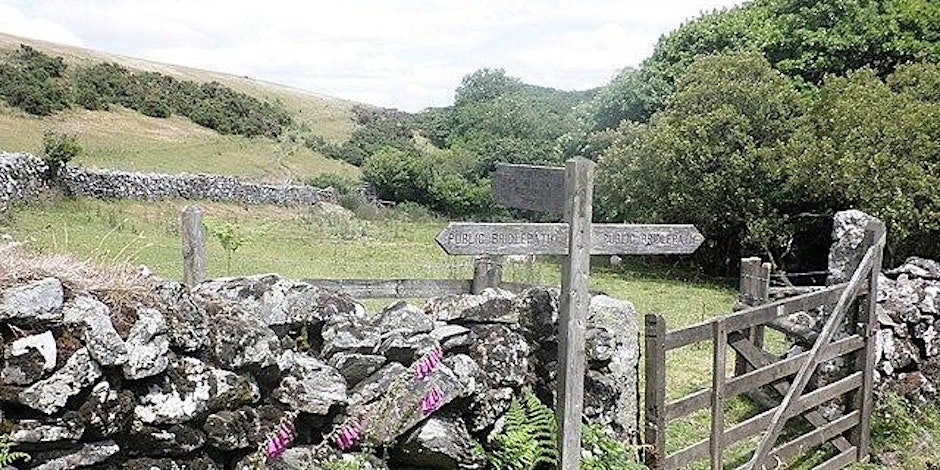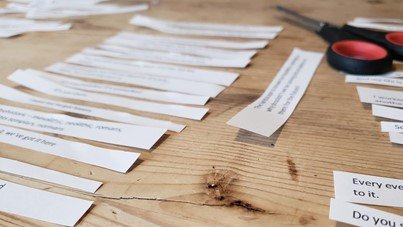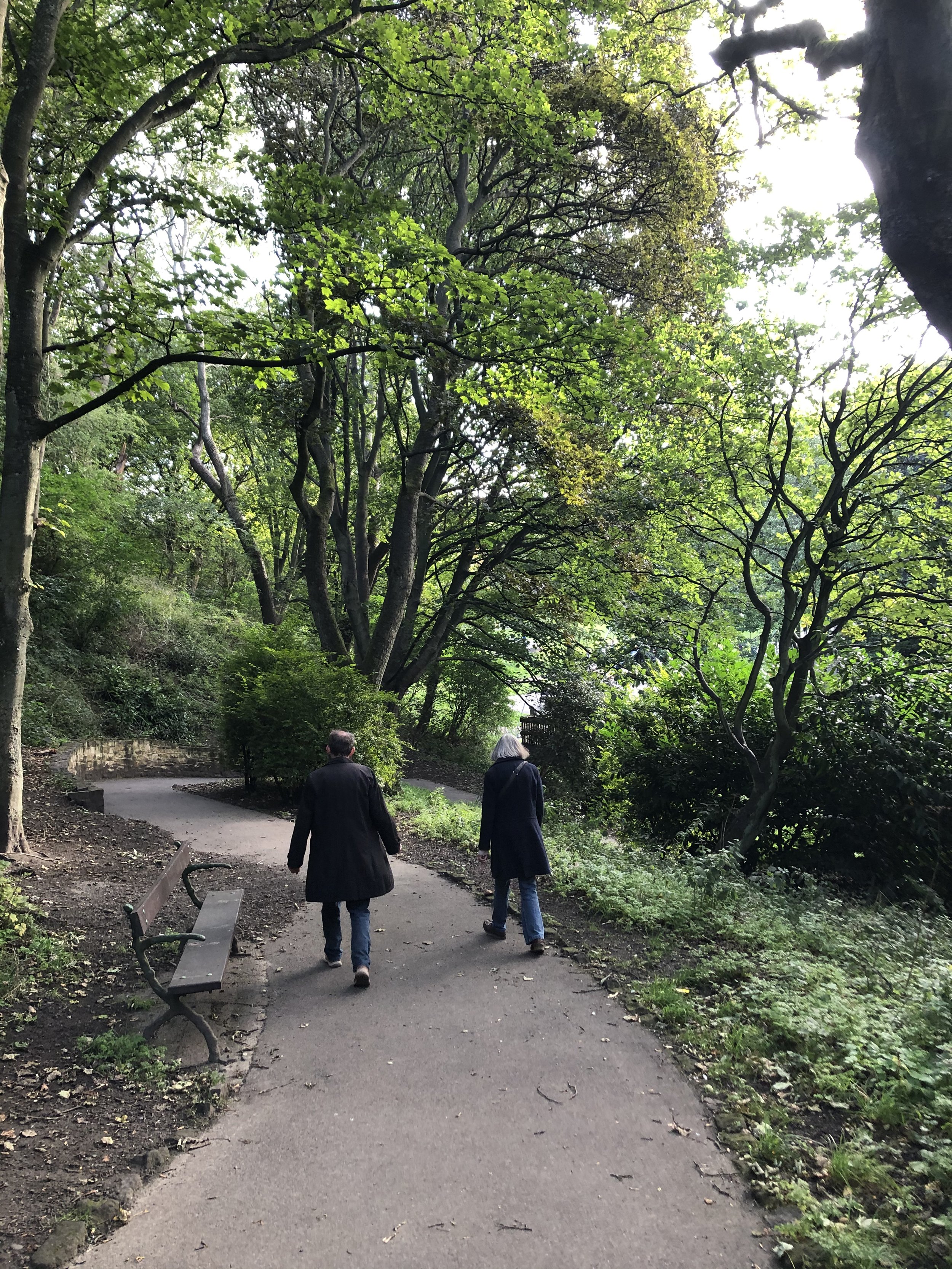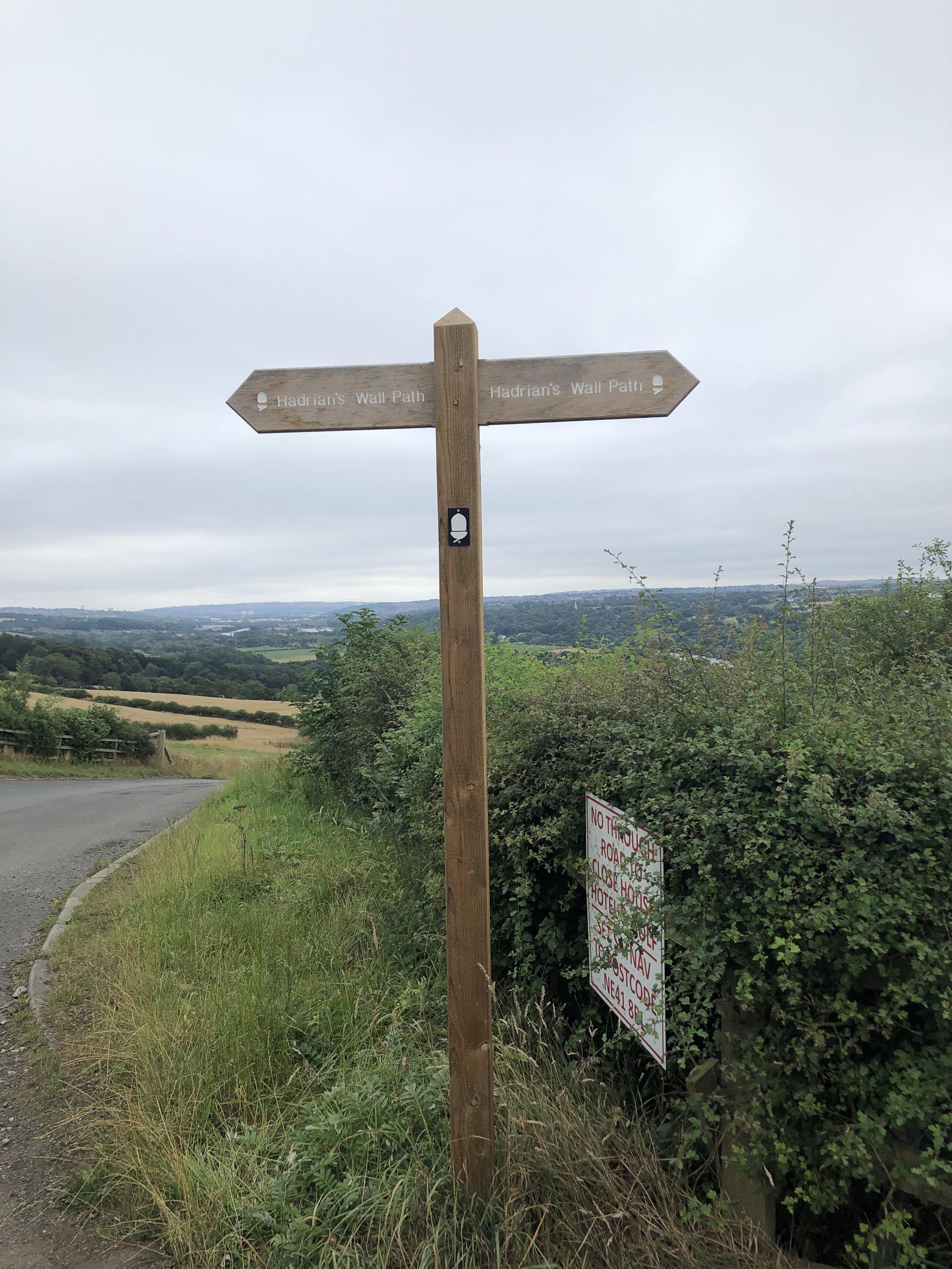
Songs for Ramblers
Join folk singer and tutor Rosie Hodgson with researcher Dr Abbi Flint (Newcastle University) in person and in voice for a day of singing and history.

In All Our Footsteps publications launch and Celebration Event
Book your place to join the In All Our Footsteps team in central London for the launch of a series of booklets drawing on the findings of the AHRC In All Our Footsteps: Tracking, Mapping and Experiencing Rights of Way in Post-War Britain project. This early evening event will launch the booklets with commentary from panellists and a wider discussion.

Crisscrossing the landscape: Rights of way as physical, legal, imaginative and emotional maps: A roundtable discussion
Mapping in various formats has been at the heart of the AHRC project, ‘In All Our Footsteps: Tracking, Mapping and Experiencing Rights of Way in Post-War Britain’ which has run from April 2021 to September 2024. During this roundtable session members of the project team will introduce their work and reflect on the different ways in which mapping has informed as well as allowed them to engage others with their research - from the recording and recovery of physical rights of way to current methods of creative mapping. We will present three short 10 minute provocations from the team before opening the floor to a wider discussion with delegates where we will ask them to reflect on the ways in which mapping has informed and aided their own work, as there are a myriad of ways in which maps and mapping are used in teaching, research and engagement and each individual, discipline and sub-discipline can learn from the others. We will encourage small group discussion to make the session interactive and provide an inclusive forum for the sharing of knowledge and experience beyond our own.

The Lost Paths
16:45 Join us as we gather at John Henry Brookes Building Reception for a guided walk through Headington setting off at 17:00
18:30 Join us in Sir Kenneth Wheare Hall, Clerici Building, for a conversation with Jack Cornish, Head of Paths at The Ramblers and author of The Lost Paths: A History of How We Walk from Here to There
You can come for the walk, or the talk, or both. However, walking tickets are limited and will be allocated to the first 35 people who select to join the walk on registering.
Explore how paths are made, how they are lost, and how they can be reclaimed.
This event will start with a guided walk through Headington’s many types of Rights of Way, before a discussion and Q&A session with Jack Cornish, Head of Paths at The Ramblers and author of the new book The Lost Paths: A History of How We Walk From Here to There (Penguin Books). Jack will reflect on the very long history of pathmaking, struggles over access and the future of policy as post-Covid recovery continues and post-Brexit policy evolves.

Whose right of way?
Abbi Flint will share research from the In All Our Footsteps Project as part of the ‘Food for Thought’ lunchtime public seminar series at Union Street Cafe, Sheffield. No booking is required. All are welcome and feel free to bring your lunch.

Songs By The Way
Join the Ouseburn Folk Choir and researchers from Newcastle University for an evening of song and history. Part of the #BeingHuman2023 Festival of the Humanities.
Image: by Michael Maasen on Unsplash

‘Songs by the way’ - presentation at Traditional Song Forum conference, University of Sheffield
Have you ever sung whilst out walking, riding, or wheeling along a footpath, bridleway, or byway? If so, you are joining a rich tradition of singing in landscapes. This short paper will share emerging findings from archival and interview research into the connections between singing, sociality, and being on paths and ways.
Unlocking pathways - presentation at European Society for Environmental History conference, University of Bern (Switzerland)
Unlocking pathways: singing and sensing the sociality of tracks and trails
Clare Hickman, Abbi Flint and Sarah Bell
This interactive workshop will use participatory activities and share multi-media provocations to explore entangled sensory and social engagements with landscape, through two UK Arts and Humanities Research Council funded projects:
‘In All Our Footsteps: Tracking, Mapping and Experiencing Rights of Way in Post-War Britain’ explores the use and experience of rights of way (footpaths, bridleways and byways), through historical, health and policy perspectives.
‘Unlocking landscapes: History, Culture and Sensory Diversity in Landscape Use and Decision Making’ is a network exploring the potential for sensory history scholarship to disrupt and expand the types of stories shared about landscape; moving beyond dominant forms of landscape encounter and enabling a greater diversity of people to ‘be’ and belong in historic landscapes.
Sharing insights from both projects, we will use cross-disciplinary approaches from history, geography and creative methodologies to interrogate and de-centre the dominance of individual and visual perspectives of pathways and landscapes. This in turn will open-up possibilities for more inclusive understandings of people-place relationships. We will invite participants to respond to multi-media provocations, to explore how socialities (with the human and more-than-human) and multi-sensory engagements (haptic, sonic, olfactory, gustatory and visual) shape histories and experiences. In particular, we will explore the role of songs and singing in these experiences. Creative approaches, such as poetry, can be effective means of researching and writing these multi-sensory, social engagements and histories with landscapes. We will share original research poems and invite participants to co-create words for a new, inclusive and sensory-engaged, ‘tramping’ song.
More information about the conference programme here: Programme of the ESEH Conference 2023 (unibe.ch)

The Young Fabians Podcast: In All Our Footsteps with Tom Breen
In this episode of the podcast Will is joined by Dr Tom Breen of Oxford Brookes University to discuss In All Our Footsteps, a research project that Tom is working on that aims to capture and record the various footpaths and other forms of rights of way that exist across the UK. They discuss Labour's contribution to rights of way access in 1949 and 2000; how having access to the countryside can improve mental and physical well being and the debate over the 2026 deadline to have all rights of way recorded.

Presentation at the Association for Environmental Archaeology Conference, University of Glasgow
Dr Abbi Flint from the In All Our Footsteps team will be presenting on Poetic inquiry and landscape heritage research.
Poets make the best topographers
-W.G. Hoskins
This session will explore the potential of poetic inquiry (Faulkner 2000) as a research method to foster creative ways of researching and thinking about human-landscape relationships and engagements. Poetry’s ability to hold and communicate the complex embodied, sensuous and affective aspects of being in the world (Giles 2000; Sansom 1994) is well suited to phenomenological explorations of dynamic human relationships with landscapes. It also holds potential, like fictive writing, as a way to capture wonder, empathy and ambiguity within archaeological interpretation (van Helden & Witcher 2020).
I will share and reflect on examples of poetic inquiry integrated at different points in the research process within two landscape archaeology and history projects, within a broader approach that draws on archival material, archaeology and folklore, and qualitative research interviews to explore plural experiences and perceptions of landscapes and their heritage.

Presentation at Royal Geographical Society International Conference, Newcastle
How have rights of way been mapped and recorded and what are some of the challenges in recovering and registering routes?
How have rights of way been constructed, or may be framed, as sites of recovery, wellbeing, connection and meaning?
Throughout England, Wales and Northern Ireland there are footpaths, bridleways and byways which are designated as public rights of way: routes through which ‘any person’ may access land ‘for the purpose of open air recreation’ (CROW Act 2000, Ch1,2). The cross-disciplinary, AHRC funded, In All Our Footsteps project takes a historical, health and policy perspective to the mapping, development, use and experience of twentieth and twenty-first century rights of way. In this interactive session participants are invited to share their thoughts and ideas on how rights of way are sites of recovery and meaning. The project team will share emerging findings/themes from the research and examples of archival material we are working with, which participants will be invited to respond to through world cafe - a flexible approach that fosters small-group collaborative conversations around topics and questions (The World Cafe 2015).

Presentation at European Society for Environmental History Conference, Bristol
The COVID-19 pandemic has brought renewed attention to the public’s access to outdoor spaces. Many people rediscovered their local paths and recognised the importance of access to nature and cultural heritage for their health and wellbeing. A survey conducted by Natural England in October 2020 found that ‘forty two per cent of adults said visiting green and natural spaces has been even more important to their wellbeing since coronavirus’. Questions of access and movement continue to be highly contemporary: Defra announced in February 2022 that they would be repealing the 2026 deadline to record historic paths in England.
The AHRC have awarded £1m of funding to ‘In All Our Footsteps: Tracking, Mapping and Experiencing Rights of Way in Post-War Britain’, a project which will explore the mapping, development, use, and experience of twentieth and twenty-first century rights of way. This project is led by Professor Glen O’Hara in collaboration with Dr Clare Hickman, Dr Abbi Flint, and Dr Tom Breen, who will each discuss some of the findings of their research so far.

Workshop on '(Un)equal Footing: Configurations, Orderings, Otherings'
With Martin Emanuel, KTH Royal Institute of Technology, Stockholm and Daniel Normark, Uppsala University, Uppsala, Sweden

‘Don’t Lose Your Way: Walking and Protecting Our Rights of Way’ Think Human Festival at Oxford Brookes University
The coronavirus pandemic has caused many people to walk every day, during the lockdown period when it often formed part of the hour’s permitted exercise outside, and then afterwards – at a time when there was a great deal of discussion about post-Covid recovery in terms of both mental and physical health.
This event we will go on a walk across Oxford before returning to Headington campus for a round-table discussion of the ways in which the Rights of Way network in England and Wales can be both defended and promoted to all. In the light of the looming legal deadline on identifying Rights of Way, action is more urgent than ever.
Book your place on eventbrite, part of the Think Human Festival at Oxford Brookes University

Heritage under foot: exploring the cultural heritage of rights of way at the Natural Horizons Symposium
In this short talk Abbi will explore footpaths as naturally and culturally shaped landscape features, drawing on insights from landscape anthropology. Footpaths can be seen both as ways of accessing natural and cultural heritage and heritage features in their own right. Re-presenting footpaths as part of living cultural heritage prompts us to consider how they have been shaped by historic uses and how this heritage influences how they may be experienced now and in the future.
Full programme and booking information here http://natural-horizons.com/programme

Accessing Land Justice
Access to land is not equitably distributed. There are huge racial and socio-economic disparities in land access in the UK, with one report showing that only 39% of BAME Britons have access to nearby green space, as opposed to 57% of the entire population – and the Covid-19 pandemic has only served to underline these disparities and the importance of access to green space. Yet the Countryside and Rights of Way Act 2000 set a deadline of 1 January 2026 for the addition of historic rights of way to the definitive map of each local authority. At this time, rights of way which existed prior to 1949, which remain unclaimed, will no longer be able to be officially recognised. This deadline requires rapid action, given the over 49,000 miles of paths in England and Wales which remain unrecognised and thus are under threat of being lost.

In All Our Footsteps: Tracking, Mapping and Experiencing Rights of Way in Post-War Britain – Work in Progress Seminar
The project team will be presenting work in progress as part of the Institute of Historical Research’s ‘People, Place and Community’ seminar series. The session will be online and more information including details of how to book can be found here: https://www.history.ac.uk/events/all-our-footsteps-tracking-mapping-and-experiencing-rights-way-post-war-britain-work